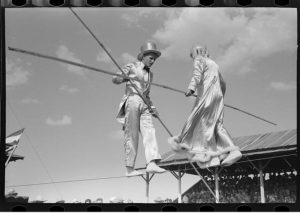 The meeting, or in modern business speak, the act of ‘touching-base’, is a high art. If you overdo a meeting you run the risk of boring your colleagues to sleep. If your meeting falls short you run the risk of leaving everyone with a confusing what-just-happened feeling.
The meeting, or in modern business speak, the act of ‘touching-base’, is a high art. If you overdo a meeting you run the risk of boring your colleagues to sleep. If your meeting falls short you run the risk of leaving everyone with a confusing what-just-happened feeling.
Meetings can either feel like a soulless cattle call or an energized debate. It’s up to leaders to set the tone, time, and value of every meeting. Here are some simple tips about what to want to do and not do:
Tone: Don’t apologize for ‘forcing’ everyone together. Take responsibility for calling a meeting and state your goals.
Whether you like it or not, your meeting will be a inconvenience to some and helpful for others. Playing to either camp won’t win you friends or standing ovations. You need to demand people’s attention by being forthright and getting to the point.
Time: We’ve all been there: The 4-hour meeting where a topic, unrelated to your department, takes center stage and you are forced to sit and listen.
Meetings can never be precisely planned since compelling ideas and questions generally arrive when the conversation starts. A good leader must know when to digest and discuss interesting conversation points (and questions) and when to let them go.
Leaders should aim for around 20 minutes in a meeting. Any more time than that and you’ll likely have exceeded the normal duration of a college class. Anything dramatically less than 20 minutes won’t be memorable and will be filed under, ‘distraction’, in everyone’s minds. The trick here is brevity and forcing people who want to say something to bring it the fore quickly so time isn’t wasted. Setting a time limit will also help cut off-topic conversations and give your team a sense of urgency. If a question is asked that requires more discussion–remember, not everyone needs to see you solve it. Try working on it later.
Value: As a leader you have to ask yourself, what is the purpose of my daily/weekly/monthly meetings? Are they simply an arena to hit home office policy and restate annual goals? Or are you trying to create a debate over a new proposal? Whatever your goals are focus on them. If you catch yourself veering off topic, people will start to glare at the clock.
Make sure you get value out of every meeting. Wasted time cripples momentum and hurts productivity. Don’t call a meeting if all you really want to do is ‘touch-base’. At the end of every meeting make sure something moved forward and something was changed. If it didn’t go anywhere, rethink what went wrong.
The art of the perfect meeting has nothing to do with entertainment or the perfect power point slides. It revolves around establishing a clear goal, keeping it short, and making sure everyone is moving forward. Leaders aren’t responsible for keeping everyone entertained, they are responsible for keeping the conversation on topic, brief, and forward looking.
Picture Credit: http://www.flickr.com/photos/alicenwondrlnd/ / CC BY 2.0



